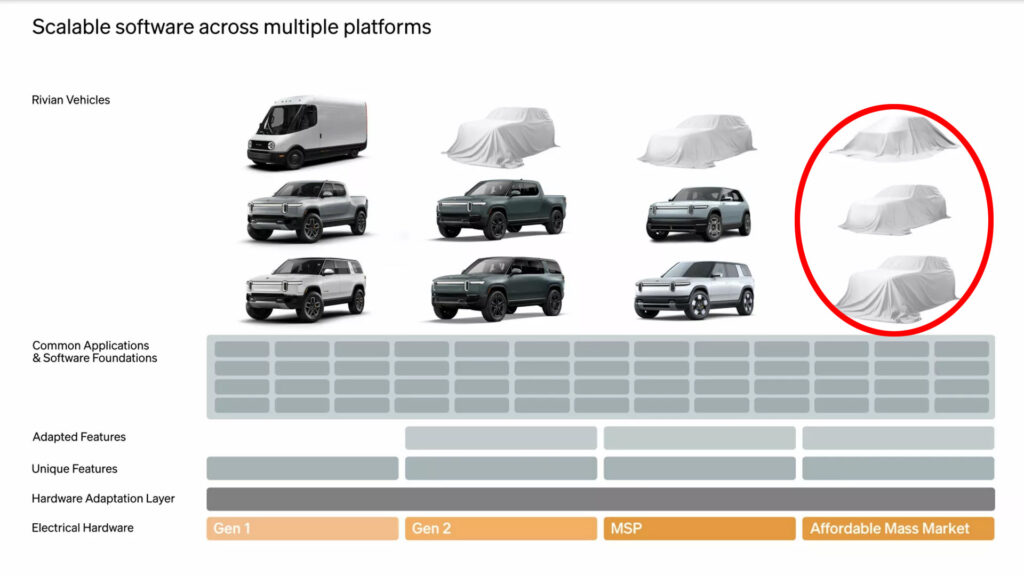Expansion of the Rivian Model Lineup
Rivian plans to significantly expand its model lineup in the future. Although the production and sales of the R1S and R1T models have stabilized over the past two and a half years, the company is already actively working on the next generation of vehicles.
Plans for Future Models
The smaller and more affordable R2 model is set to start production next year, followed by the R3 around 2028, when Rivian’s new plant in Georgia reaches full capacity. According to the company’s leadership, this is just the beginning.
During an appearance on the Tosh Show podcast with Daniel Tosh, Rivian CEO RJ Scaringe confirmed that the model lineup is expected to expand significantly beyond the R2 and R3. He even suggested that Rivian could eventually offer up to six different models.
“We think we’ll probably end up with five or six different vehicles,” Scaringe explained. “After the R1 come the R2 and R3. And after the R2 and R3 will be the R4 and R5. Our product plan currently goes that far, and that’s what we’re working on, but an R6 could also appear. I, of course, can’t talk about it or show you… but the R4 and R5 are so cool, they are the next step after the R2 and R3.”
Affordable Mass-Market Electric Vehicles
This is not the first time Rivian has hinted at expanded product plans. During an investor day last year, the company showed three potential “affordable mass-market” models slated for launch after the R2 and R3.
All these vehicles were hidden under covers, keeping their design a secret, but if they see the light of day, they will feature the same electrical architecture and software as other Rivian models, as well as future Volkswagen products.

Earlier this year, Scaringe noted that there are “very, very few highly competitive options” for electric vehicles under $50,000, which is precisely why Tesla has been able to capture such a significant market share.
Undoubtedly, Rivian hopes that with more affordable models, it will be able to significantly increase delivery volumes and become a serious threat not only to Tesla but also to traditional automakers like GM and Ford, who are also investing heavily in electric vehicles.
These ambitious plans indicate that Rivian is preparing for long-term competition in the electric vehicle market, where affordability and technological advantages are becoming key success factors. Expanding the model lineup will allow the company to cover various price categories and increase its global presence, which is especially important in the face of growing competition from both new and established manufacturers.


 by
by 
